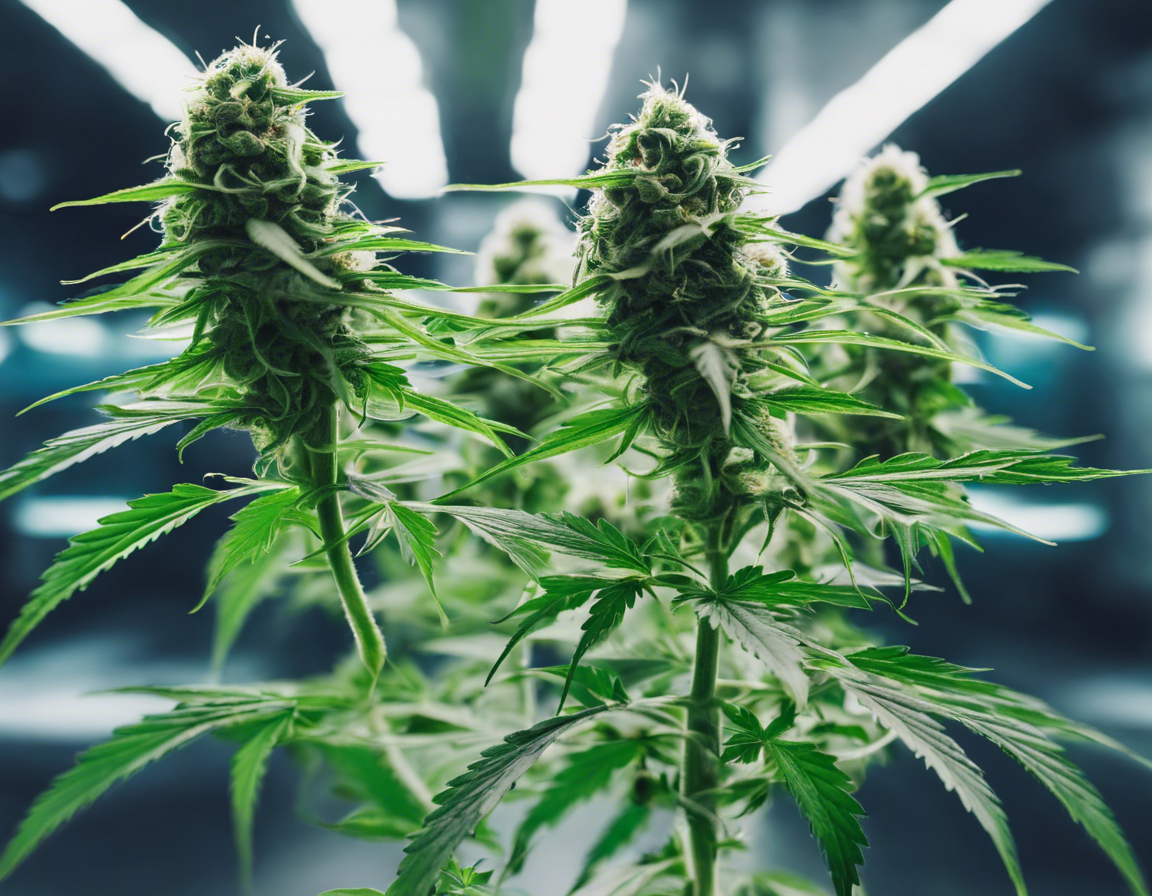Introduction
Cloning in the context of cannabis cultivation refers to the process of replicating genetically identical plants from a single parent. This technique has gained popularity among growers due to its ability to preserve the desirable traits of a particular plant, such as high potency, specific terpene profiles, or unique growth characteristics. In this comprehensive guide, we will delve into the details of cannabis cloning, from understanding the basics to mastering the techniques for successful cloning.
Understanding Cannabis Cloning
What is Cannabis Cloning?
Cannabis cloning is a method of asexual reproduction where a cutting or a piece of a plant is used to grow a genetically identical offspring. This process allows growers to replicate their best-performing plants without relying on seeds, ensuring consistency in quality and characteristics.
Benefits of Cannabis Cloning
- Preservation of Genetics: Cloning ensures that the desirable traits of a plant are retained in the offspring, maintaining consistency in factors like potency, flavor, and yield.
- Time and Cost Efficiency: Cloning eliminates the germination phase of seedlings, allowing growers to skip the initial stages of plant development, saving time and resources.
- Predictable Growth: Since clones share the same genetic makeup as the parent plant, their growth patterns, flowering times, and nutrient requirements are more predictable.
The Cloning Process
1. Selection of Parent Plant
Choose a healthy and vigorous plant with desirable traits such as high potency, robust growth, or unique flavors. The success of cloning depends on the health and genetics of the parent plant.
2. Taking Cuttings
- Select a branch with new growth at least 4-6 inches long.
- Use a sharp, sterilized blade to make a clean cut at a 45-degree angle.
- Remove excess leaves from the lower half of the cutting to reduce moisture loss.
3. Rooting the Cuttings
- Dip the cut end of the clone in a rooting hormone to stimulate root growth.
- Plant the cutting in a growing medium such as rock wool, peat pellets, or soil.
- Maintain high humidity and moderate light levels to encourage root development.
4. Transplanting
Once the roots have developed (usually within 2-3 weeks), transplant the clones into larger pots with suitable nutrient-rich soil. Gradually acclimate them to their final growing environment to prevent transplant shock.
Tips for Successful Cloning
- Maintain a clean environment to prevent the spread of diseases and pathogens.
- Use rooting hormones to stimulate root growth and improve success rates.
- Provide adequate humidity and temperature for optimal root development.
- Monitor watering to prevent over-watering, which can lead to root rot.
- Choose the right growing medium based on the needs of your plants.
Advanced Cloning Techniques
Tissue Culture
Tissue culture is an advanced cloning technique that involves culturing plant cells in a nutrient-rich agar medium. This method allows for the mass production of genetically identical plants in a sterile environment, reducing the risk of disease and contamination.
Monster Cropping
Monster cropping involves taking clones from flowering plants rather than vegetative plants. This technique can result in bushier plants with increased branching and higher yields, though it may extend the overall flowering time.
ScrOG (Screen of Green) Cloning
ScrOG cloning involves training clones to grow horizontally along a screen or trellis to create an even canopy of buds. This technique maximizes light exposure to lower bud sites, resulting in higher yields and more uniform growth.
FAQs (Frequently Asked Questions)
1. How long does it take for a clone to root?
Clones typically root within 1-3 weeks, depending on factors such as genetics, environmental conditions, and the use of rooting hormones.
2. Can you clone a flowering plant?
While it is possible to clone a flowering plant (known as monster cropping), the process may take longer, and the resulting clones may exhibit different growth patterns.
3. How many times can you clone a plant?
Plants can be cloned multiple times, though the vigor and health of the clones may diminish with each subsequent generation.
4. Do clones have the same potency as the parent plant?
Clones share the same genetic makeup as the parent plant, so their potency and other traits are usually similar. However, environmental factors can also influence potency.
5. Can you clone autoflowering strains?
Autoflowering strains can be cloned, but the resulting clones may not retain the autoflowering trait, as this characteristic is determined by genetics and not affected by cloning.
6. How do I prevent diseases in my clones?
To prevent diseases in clones, maintain a clean and sterile environment, use sterilized equipment, and quarantine new plants to avoid introducing pathogens to your cultivation space.
7. Can I clone a clone?
While it is possible to clone a clone, the genetic integrity and vigor of successive generations may decline, leading to potential issues with plant health and performance.
8. Do all plants respond well to cloning?
While most cannabis plants can be successfully cloned, some strains or individual plants may exhibit lower success rates due to genetic factors or overall health.
9. Should I prune my clones before rooting?
Pruning the lower leaves of clones can help reduce moisture loss and focus the plant’s energy on root development. However, avoid excessive pruning that may stress the clone.
10. Can I clone a male cannabis plant?
Cloning a male cannabis plant is possible, but since males do not produce flowers, the clones will also be male and unsuitable for flower production. Male clones are typically used for breeding purposes.
Conclusion
Cannabis cloning is a valuable technique that allows growers to replicate their best-performing plants with precision and consistency. By mastering the art of cloning and employing advanced techniques, cultivators can create a thriving garden of genetically identical plants, each showcasing the desirable traits of its parent. Whether you are a novice grower or a seasoned cultivator, experimenting with cloning can unlock a world of possibilities in cannabis cultivation, leading to enhanced yields, quality, and overall success in your growing endeavors.
